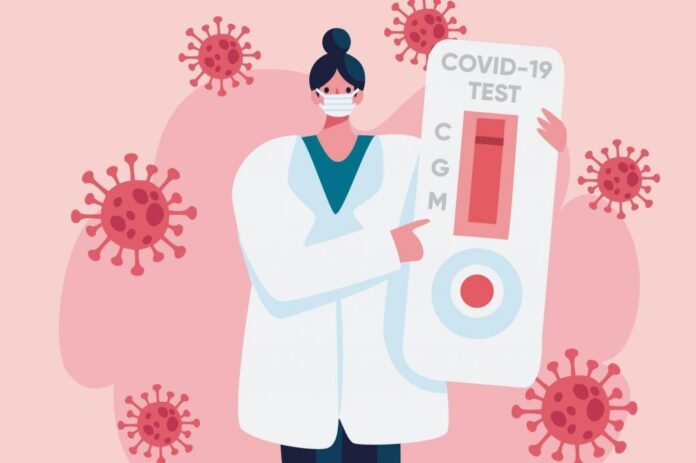As winter approaches and Christmas begins, the COVID-19 epidemic reaches a new stage. Many people are questioning their holiday plans due to the possibility of the omicron strain and increasing infection rates.
President Joe Biden suggested several measures to counter the COVID-19 pandemic. These included private insurance being able to pay for at-home COVID-19 fast diagnosis and research for Monoclonal antigen treatment. Many people still have questions about the difference between antigen and PCR testing, even though COVID-19 testing has become a common topic.
How Quick Antigen Tests Operate
These rapid antigen assays can be used to identify an antigen, or piece of SARS-CoV-2 protein. The model is then combined with a substance that breaks down the virus. You then apply the liquid to a test strip containing thinly-painted SARS-CoV-2 specific antibodies. Antibodies are proteins with a Y-shaped shape. They can attach to foreign molecules such as antigens and identify them. If the antibodies bind to viral proteins or antigens, a colorful line appears on the test strip.
These tests are efficient because they are easy to use and produce results quickly (typically in less than 15 minutes). Antigen testing can be affordable, with tests costing anywhere from US$10 to $15. There are many ways to get these tests free of charge, but PCR testing requires staff and laboratory equipment, can take 12 hours to several weeks to produce results, and costs $100.
In his announcement, President Biden also spoke of the intention to offer 50 million free tests to community healthcare professionals to those who don’t have insurance. For information about when quick screenings are available, people can consult local media outlets. Colorado has provided free screenings to families with school-age children for many months. It would help if you were ready to act quickly: 100,000 people signed up in New Hampshire for antigen COVID testing free of charge in 24 hours.
The Food and Drug Administration approved approximately 12 fast antigen tests for SARS-CoV-2 in December 2021. This means that they meet specific requirements for performance and reliability.
Quick Tests for
If you have COVID-19 symptoms, regardless of your vaccination status, it is important to get tested with an antigen test or a PCR. SARS-CoV-2 can quickly spread even if you don’t have any symptoms. It is important to get tested early, as cutting-edge drugs from companies such as Merck and Pfizer are most effective when given right away after symptoms appear.
If your antigen test is negative but you feel unwell, it’s possible that you have a false positive test. If your test results come back positive, you should immediately isolate yourself and contact your doctor.
If you have been exposed to the virus, it is recommended that you wait five to seven days before receiving a PCR (or fast antigen) test. To confirm that you are fully vaccinated, get checked immediately. Like many respiratory viruses, SARS-CoV-2 can take many days for your body to build up. A quick test may not be able to detect your illness because there isn’t any viral protein at this stage. Because contagious people have the highest virus levels in their respiratory tracts, rapid antigen testing can be very reliable.
Studies have shown serial antigen testing to be as effective as a single PCR test. It usually involves two or three tests spread out over a week. Antigen testing can be used to confirm negative results in the initial stages of infection.
Future COVID-19 Home Testing
Our team is conducting several investigations to bridge these gaps. The CDC recommends that fully immunized people delay receiving a PCR (fast antigen test) for five to seven business days after a COVID-19 exposure. Individuals who aren’t fully immunized should be checked immediately.
We are currently investigating how individuals use home testing to determine if their infection risk level is low or high. This is one of the issues we are studying using STOP COVID-19. A person who avoids eating out or wears a mask indoors might be considered low-risk, while a person who isn’t vaccinated and gathers with others who aren’t wearing masks could be high-risk. We want to find out if people will adhere to a testing plan after exposure, and if they will notify their local public health agency about the results of their home tests.
Our team is also researching how COVID-19-antigen testing compares with PCR tests to identify positive, but asymptomatic people. This question will be answered over the coming months by our team thanks to important data from a national survey called Test Us At Home.
The Covid testing in north Richland is a valuable tool in society’s fight against the COVID-19 virus. These steps, when taken properly, can help to prevent the spread of SARS-CoV-2 during this holiday season.









